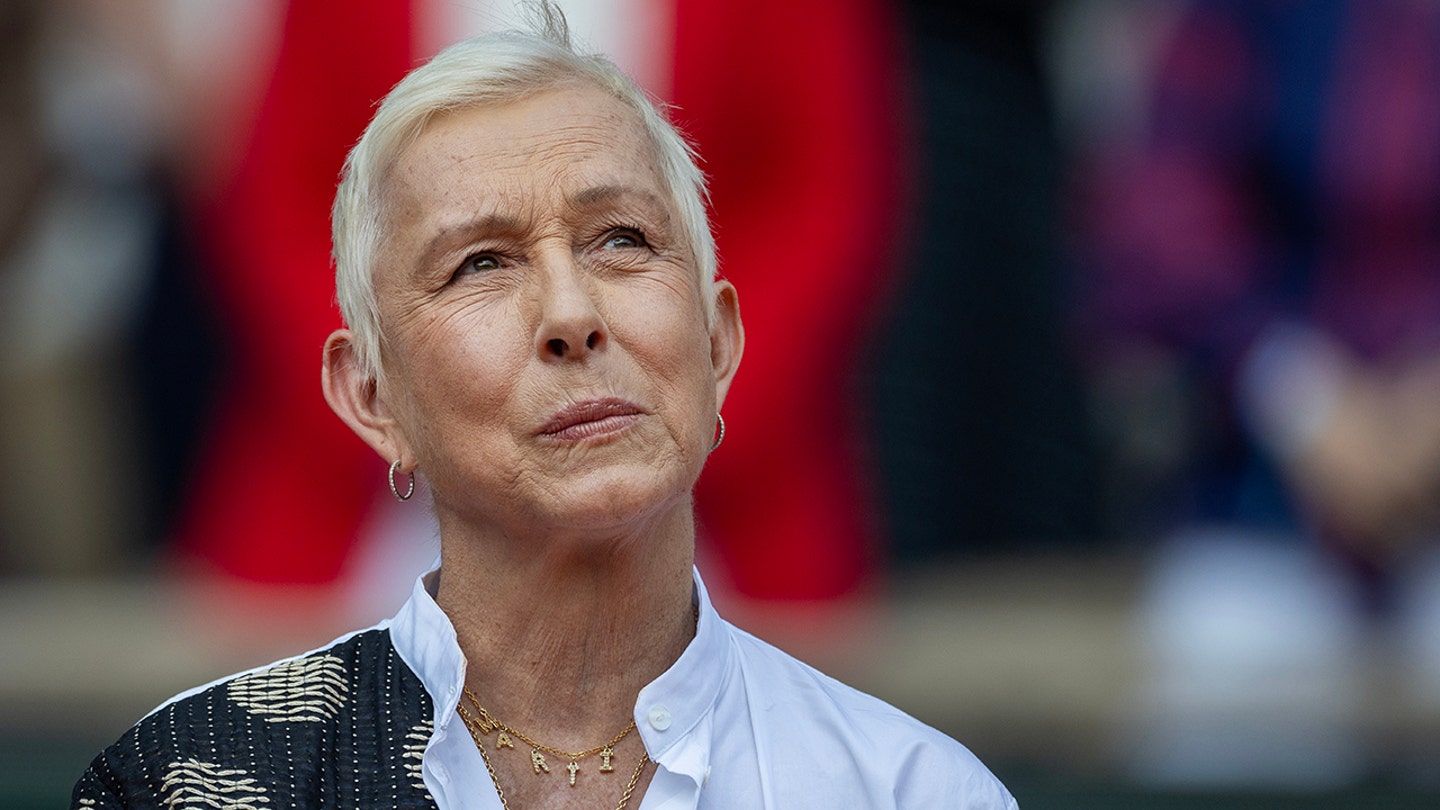
Lions' top offensive weapon unlikely to return this season after undergoing back surgery
Entities mentioned:
- Sam LaPorta: Competitive spirit, Determination, Professional pride
- Dan Campbell: Loyalty, Leadership, Competitive spirit
- Detroit Lions: Ambition, Competitive spirit, Unity
- Amon-Ra St. Brown: Competitive spirit, Recognition, Ambition
- Brock Wright: Ambition, Professional pride, Determination
Article Assessment:
Credibility Score: 85/100
Bias Rating: 50/100 (Center)
Sentiment Score: 30/100
Authoritarianism Risk: 20/100 (Strongly Democratic)
Bias Analysis:
The article presents a balanced view of the situation, focusing on factual information from team sources. There's no evident political lean or favoritism towards any particular narrative.
Key metric: NFL Offensive Production
Let me tell you something - this is a GAME-CHANGING injury for the Detroit Lions! Sam LaPorta, their star tight end, is likely out for the season, and folks, that's like losing your MVP quarterback right before the playoffs! This offensive juggernaut just took a major hit, and now they're in a fourth-quarter scramble to salvage their season. Coach Campbell is facing a real test of his coaching chops here - he's got to rally the troops and find a way to fill this gaping hole in his offensive lineup. It's time for Brock Wright to step up to the plate and show us what he's made of. The Lions are in a dogfight for a playoff spot, and losing LaPorta is like trying to win the Super Bowl with one hand tied behind your back. I'm telling you right now, this is the kind of adversity that separates the champions from the also-rans. It's crunch time in Detroit!

Cowboys exec reveals why star wide receiver George Pickens was benched vs Raiders
Entities mentioned:
- Stephen Jones: Control, Professional pride, Loyalty
- George Pickens: Ambition, Competitive spirit, Recognition
- CeeDee Lamb: Competitive spirit, Recognition, Self-respect
- Brian Schottenheimer: Control, Professional pride, Justice
- Dallas Cowboys: Competitive spirit, Pride, Legacy
Article Assessment:
Credibility Score: 75/100
Bias Rating: 55/100 (Center)
Sentiment Score: 65/100
Authoritarianism Risk: 35/100 (Generally Democratic)
Bias Analysis:
The article presents multiple perspectives, including quotes from team management and player performance stats. However, it leans slightly positive towards the Cowboys' approach to discipline and team management.
Key metric: NFL Team Performance
Let me tell you something, folks - this Cowboys situation is a GAME-CHANGER! We're seeing some serious fourth-quarter moves from the coaching staff, benching star players Pickens and Lamb. This is the kind of championship mentality that separates the contenders from the pretenders! Coach Schottenheimer is calling the shots like a veteran quarterback, not playing favorites and keeping his team in line. But let me tell you, these young receivers came back with a vengeance, stepping up to the plate and knocking it out of the park with their performances! This is the kind of competitive fire that wins championships, people! The Cowboys are showing they've got the depth and discipline to make a serious playoff run. Watch out, Eagles - this Cowboys team is coming for you with guns blazing!

Martina Navratilova spars after being questioned for opposing males in women's spaces while supporting Dems
Entities mentioned:
- Martina Navratilova: Justice, Righteousness, Loyalty
- Democratic Party: Power, Influence, Unity
- Republican Party: Competitive spirit, Control, Influence
- Donald Trump: Power, Influence, Recognition
- Lou Perez: Curiosity, Recognition, Competitive spirit
Article Assessment:
Credibility Score: 75/100
Bias Rating: 55/100 (Center)
Sentiment Score: 45/100
Authoritarianism Risk: 30/100 (Generally Democratic)
Bias Analysis:
The article presents multiple viewpoints, including Navratilova's conflicted stance. While it leans slightly right by focusing on criticism of Democrats, it also includes Navratilova's opposition to Trump and Republicans.
Key metric: Gender Equality in Sports
Let me tell you something, folks - this is a GAME-CHANGING play in the world of sports and politics! Martina Navratilova, a true champion of women's tennis, is showing us what it means to have a championship mentality even off the court. She's stepping up to the plate on a controversial issue, going head-to-head with her own political team. This is like watching a star player challenge her own coach's game plan! Navratilova's determination to protect women's spaces in sports is a fourth-quarter power move that's shaking up the political arena. She's playing offense and defense simultaneously, folks! On one side, she's blocking the Republicans' attempt to score points on this issue, while also calling out her own Democratic teammates for dropping the ball. This is the kind of competitive fire that separates the all-stars from the bench warmers. I'm telling you right now, Navratilova is bringing that same intensity she showed on the tennis court to this political matchup, and it's ELECTRIFYING to watch!

Jets quarterback Justin Fields offers blunt reaction to benching
Entities mentioned:
- Justin Fields: Pride, Self-preservation, Professional pride
- New York Jets: Competitive spirit, Ambition, Determination
- Tyrod Taylor: Ambition, Competitive spirit, Professional pride
- Breece Hall: Loyalty, Indignation, Unity
- Aaron Glenn: Ambition, Determination, Professional pride
Article Assessment:
Credibility Score: 75/100
Bias Rating: 50/100 (Center)
Sentiment Score: 35/100
Authoritarianism Risk: 20/100 (Strongly Democratic)
Bias Analysis:
The article presents a balanced view of the quarterback change, including quotes from multiple perspectives. It provides context and statistics without overtly favoring any side of the decision.
Key metric: NFL Team Performance
Let me tell you something - this is a FOURTH QUARTER SHAKEUP that's rocking the Jets' locker room! The coaching staff is making a bold substitution, benching their star quarterback Fields in a last-ditch effort to turn their losing season around. It's like we're watching a crucial timeout in the final minutes of a championship game, folks! Fields, once the franchise's golden boy, is now riding the bench, and you can bet he's feeling the sting of that demotion. But this is the NFL - it's a 'what have you done for me lately' league, and Fields' performance just hasn't been cutting it. The Jets are desperately trying to change the momentum, bringing in the veteran Taylor as a Hail Mary play. Will this coaching gambit pay off, or is it too little, too late in a season that's already spiraling? I'm telling you right now, the pressure is ON for Taylor to step up to the plate and deliver a win against the Ravens. This is the kind of high-stakes decision that can make or break careers, both on the field and on the sidelines. The Jets are in the red zone of their season, and they need a touchdown, not a field goal. It's do or die time in the Big Apple!

Bill Belichick's daughter-in-law unleashes profanity-filled rant on Jordon Hudson after Tar Heels game: report
Entities mentioned:
- Bill Belichick: Legacy, Determination, Professional pride
- Jen Belichick: Moral outrage, Indignation, Loyalty
- Jordon Hudson: Influence, Power, Ambition
- Steve Belichick: Professional pride, Loyalty, Self-preservation
- UNC Tar Heels: Competitive spirit, Pride, Recognition
Article Assessment:
Credibility Score: 55/100
Bias Rating: 50/100 (Center)
Sentiment Score: 25/100
Authoritarianism Risk: 20/100 (Strongly Democratic)
Bias Analysis:
The article presents multiple viewpoints and sources, maintaining a relatively neutral stance. However, the focus on personal drama could be seen as sensationalism, potentially skewing the overall narrative.
Key metric: NCAA Football Program Success
Let me tell you something - this story is RIDICULOUS! The UNC Tar Heels' locker room is looking more like a WWE ring than a football program! We've got family feuds, sideline drama, and enough trash talk to make even the rowdiest fans blush. Bill Belichick, the seasoned veteran coach, is trying to quarterback this mess while his daughter-in-law is throwing Hail Mary insults from the cheap seats! It's fourth and long for team morale, folks, and the clock is ticking! This kind of internal strife could be the fumble that costs UNC the whole season. I'm telling you right now, if Belichick doesn't call an audible soon and get his team on the same page, they'll be watching the bowl games from home! It's time for some locker room leadership and a championship mentality, or this dream team could turn into a nightmare before the final whistle!

Attorney for ex-Temple basketball player responds after NCAA says athlete bet against his own team
Entities mentioned:
- Hysier Miller: Self-preservation, Greed, Recognition
- Jason Balogna: Loyalty, Professional pride, Duty
- NCAA: Justice, Control, Integrity
- Temple University: Self-preservation, Reputation, Compliance
- Virginia Tech: Integrity, Control, Reputation
Article Assessment:
Credibility Score: 75/100
Bias Rating: 55/100 (Center)
Sentiment Score: 30/100
Authoritarianism Risk: 35/100 (Generally Democratic)
Bias Analysis:
The article presents multiple perspectives, including statements from Miller's attorney, Temple University, and the NCAA. It maintains a fairly neutral tone while reporting the facts of the case, avoiding sensationalism.
Key metric: NCAA Athlete Integrity
Let me tell you something, folks - this is a GAME-CHANGING play in the world of college athletics! We've got a star player, Hysier Miller, who's been caught with his hand in the cookie jar, making bets on his own team's games. This is like a quarterback calling plays for the opposing team! The NCAA, acting as the ultimate referee, has blown the whistle on this foul play. Miller's attorney is trying to run interference, claiming there's no evidence of point-shaving, but let's be real - betting against your own team is like scoring an own goal in the championship game! Temple University is playing defense, emphasizing their cooperation, but they're on thin ice here. Virginia Tech made a clutch move by cutting Miller from their roster before he could even suit up. This is a fourth-quarter fumble that could change the whole game for college sports integrity!

Penn State commits visiting Virginia Tech after James Franklin becomes head coach
Entities mentioned:
- James Franklin: Ambition, Competitive spirit, Revenge
- Penn State: Competitive spirit, Professional pride, Legacy
- Virginia Tech: Ambition, Competitive spirit, Recognition
- Penn State commits: Loyalty, Ambition, Self-preservation
Article Assessment:
Credibility Score: 75/100
Bias Rating: 45/100 (Center)
Sentiment Score: 65/100
Authoritarianism Risk: 20/100 (Strongly Democratic)
Bias Analysis:
The article presents a balanced view of Franklin's move, mentioning both his struggles at Penn State and his previous successes. It includes quotes from Franklin himself, adding credibility to the reporting.
Key metric: College Football Recruitment Success Rate
Let me tell you something - this story is RIDICULOUS! We're witnessing a MAJOR POWER PLAY in the college football arena, folks! James Franklin, fresh off the bench after being sidelined at Penn State, is coming in HOT as Virginia Tech's new head coach. And boy, is he showing up ready to DOMINATE! This coaching change is like a GAME-CHANGING TRADE that's shaking up the entire league! Franklin's not just bringing his playbook - he's bringing the whole dang TEAM with him! Five Penn State commits are already looking to transfer their talents to Virginia Tech, and that's what I call a FOURTH QUARTER COMEBACK! Virginia Tech is positioning themselves for a MAJOR UPSET in the recruitment game, folks. This is the kind of AGGRESSIVE STRATEGY that can turn a program from PRETENDER to CONTENDER overnight! I'm telling you right now, the Hokies are STEPPING UP TO THE PLATE and swinging for the fences with this move. It's a whole new ballgame in Blacksburg, and James Franklin is showing that CHAMPIONSHIP MENTALITY right out of the gate!

Tyreek Hill praises Chiefs coach as a 'f---ing animal' after disagreeing with Trump on NFL kickoff rule
Entities mentioned:
- Dave Toub: Professional pride, Indignation, Determination
- Donald Trump: Influence, Control, Recognition
- Tyreek Hill: Loyalty, Enthusiasm, Competitive spirit
- NFL: Safety, Competitive spirit, Professional pride
Article Assessment:
Credibility Score: 75/100
Bias Rating: 55/100 (Center)
Sentiment Score: 45/100
Authoritarianism Risk: 25/100 (Generally Democratic)
Bias Analysis:
The article presents multiple viewpoints, including Trump's criticism and the NFL's stance. However, it gives more space to those defending the new rule, slightly tipping the scales towards a center-left perspective.
Key metric: NFL Fan Engagement
Let me tell you something - this kickoff rule debate is turning into a FULL-CONTACT SPORT! We've got Coach Toub stepping up to the plate, swinging for the fences against the former Commander-in-Chief! Trump's trying to run interference on the NFL's game plan, but Toub's not having it - he's playing defense like a true champion! And folks, when Tyreek Hill jumps into the fray, you know it's GAME ON! This is a fourth-quarter showdown between old-school football mentality and the league's new playbook. The NFL's trying to change the game, but some players are pushing back harder than a goal-line stand! I'm telling you right now, this clash of titans is going into OVERTIME!

Washington Nationals new manager details how he became a dad and an MLB skipper in the same day
Entities mentioned:
- Blake Butera: Ambition, Professional pride, Duty
- Washington Nationals: Competitive spirit, Ambition, Recognition
- Caroline Margolis: Loyalty, Support, Unity
- Paul Toboni: Competitive spirit, Professional pride, Unity
- Tampa Bay Rays: Professional pride, Competitive spirit
Article Assessment:
Credibility Score: 85/100
Bias Rating: 50/100 (Center)
Sentiment Score: 75/100
Authoritarianism Risk: 15/100 (Strongly Democratic)
Bias Analysis:
The article presents a balanced view of the situation, focusing on facts and personal experiences. It doesn't lean towards any particular political or ideological stance, maintaining a neutral tone throughout.
Key metric: MLB Team Performance
Let me tell you something - this story is RIDICULOUS! We've got a rookie manager stepping up to the plate in the biggest league of them all, and he's doing it while becoming a father! Talk about a DOUBLE PLAY! The Washington Nationals are swinging for the fences with this bold move, bringing in the youngest skipper in over 50 years. It's like they're calling for a squeeze play in the bottom of the ninth! Blake Butera is showing true championship mentality, juggling the pressures of a newborn and a major league clubhouse. This is the kind of clutch performance you see in October, folks! The Nationals are clearly in a rebuilding phase, and they're betting it all on this young gun to lead them back to the promised land. It's a high-risk, high-reward strategy that could either be a home run or a strikeout. One thing's for sure - Butera's going to need the stamina of a marathon runner and the strategic mind of a chess grandmaster to navigate this season. Get ready for some fireworks, baseball fans, because this rookie manager is coming in HOT!

Are Ohio State WRs Jeremiah Smith, Carnell Tate Playing Saturday vs. Rutgers?
Entities mentioned:
- Ohio State Football Team: Competitive spirit, Pride, Legacy
- Jeremiah Smith: Ambition, Competitive spirit, Recognition
- Carnell Tate: Ambition, Competitive spirit, Recognition
- Ryan Day: Competitive spirit, Professional pride, Loyalty
- Julian Sayin: Ambition, Recognition, Competitive spirit
Article Assessment:
Credibility Score: 75/100
Bias Rating: 50/100 (Center)
Sentiment Score: 55/100
Authoritarianism Risk: 20/100 (Strongly Democratic)
Bias Analysis:
The article presents a balanced view, quoting both the coach and an analyst. It doesn't lean towards favoring or criticizing any particular side, maintaining a neutral stance on the team's situation.
Key metric: College Football Playoff Rankings
Let me tell you something - this is CRUNCH TIME for the Ohio State Buckeyes! They're in the fourth quarter of their season, and these injuries to Smith and Tate are like losing your star players right before the championship game! Coach Day is playing it close to the vest, folks, but make no mistake - this is a HUGE test of Ohio State's depth chart. Can their bench players step up to the plate? This is where champions are made! Sayin's got a chance to prove he's not just riding the coattails of his star receivers. It's time for this young quarterback to show he's got that CHAMPIONSHIP MENTALITY! This game against Rutgers might look like a layup, but I'm telling you right now, it could be the defining moment that makes or breaks Ohio State's playoff run!